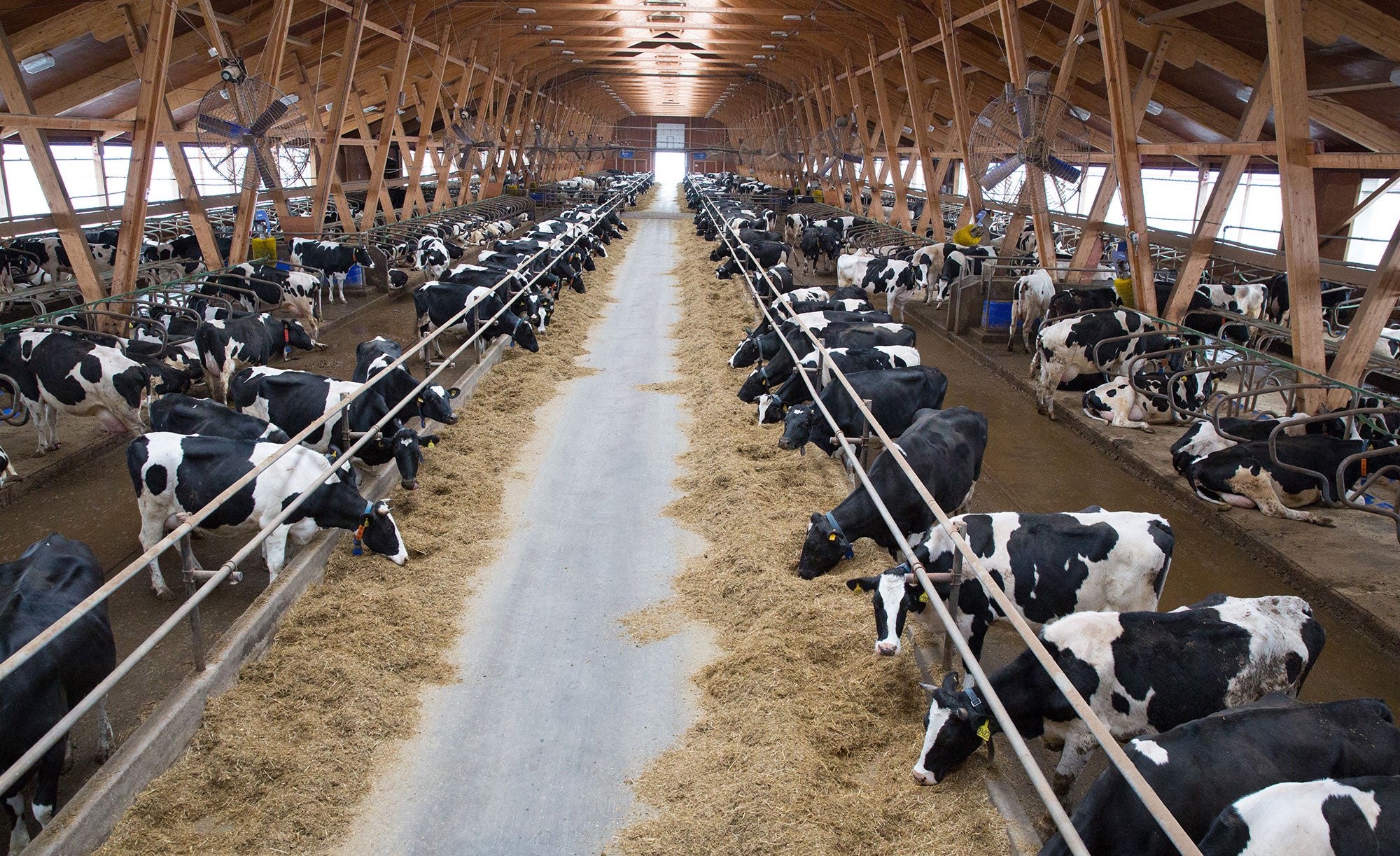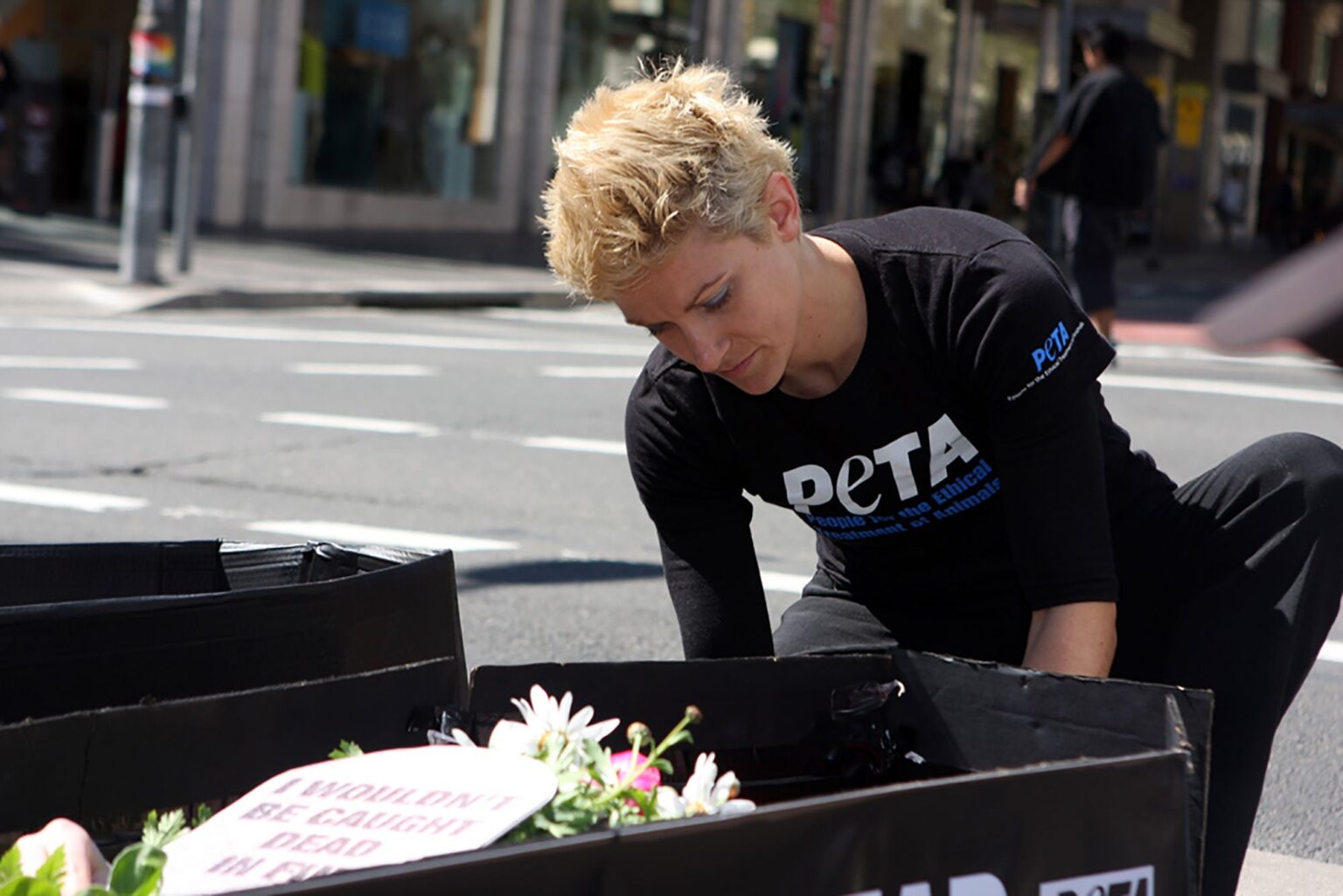In a surprising move, People for the Ethical Treatment of Animals released an article in early September putting on blast some of its longtime vegan allies, including the Humane Society of the United States (HSUS), the American Society for the Prevention of Cruelty to Animals (ASPCA), and Compassion in World Farming. In that article, PETA accused them of promoting “factory farming” operations that label their products as “certified” or “humane” — something that PETA sees as contradictory. PETA called for those organizations to step down from the board of directors of the Global Animal Partnership.
This rift between these prominent animal-rights organizations highlights deeper ideological differences in how to approach animal welfare and how perspectives can differ so greatly. As someone who has spent years in the livestock industry, I wanted to chime in on the matter.
PETA said that its investigators “found systemic cruelty, deprivation, and suffering” at two Pennsylvania operations — Plainville Farms and Sweet Stem Farm — both of which sell to major growers and allegedly have the backing of PETA’s former allies. PETA claimed that the “humane” labels these farms received were just a clever marketing tool to promote “factory farming” under the guise of animal welfare (that’s ignoring the basic concept that “factory farming” isn’t even a scientific or recognized phrase, only something tossed around by niche groups).
PETA appears to have been stewing on this issue for years. The Plainville investigation took place in 2021, and the Sweet Stem one was from 2015. The issue seems to be that these farms continue to sell their products to major companies like Whole Foods and make statements about sustainability and other “feel-good” messaging. In fact, Sweet Stem’s LinkedIn profile describes it as “a ‘high-touch’ farm committed to giving an extra degree of care and attention to our animals.”
To understand why labels like “humane” and “certified” are important, it’s essential to recognize that any farmer has a vested interest in the health and well-being of their animals. The healthier the animal, the more productive and profitable it is for the farmer. It’s common sense — treat animals well, and they will in turn provide higher quality products. There are a few certifications and labels out there that help to formalize this process and ensure accountability, particularly for consumers who may not be familiar with farming practices.

It’s not clear whether PETA’s claims hold up to scrutiny — or perhaps PETA is working off of information that’s years old and is stirring up outrage for outrage’s sake. The evidence the organization links to, as usual, involves close-cropped “investigative” videos with few ways to identify locations or suspected perpetrators. They’re then used as part of an activist campaign called “Whole Foods Myths.” And, of course, a donation button is close by.
According to PETA, “Sweet Stem Farm is certified as a ‘Step 2’ pig farm, according to Whole Foods’ ‘5-Step’ standards. The majority of Whole Foods-supplying pig farms only meet ‘Step 1’ requirements, so as a ‘Step 2’ farm, Sweet Stem Farm is expected to meet higher welfare standards than most of the others. Whole Foods touts ‘Step 2’ farms as spacious and having an enriched environment to keep the pigs entertained.”
The 2015 PETA video is intended to dispute those claims.
For its part, Sweet Stem Farm describes itself as a small-scale operation with fewer than 10 employees, located in Pennsylvania’s Dutch Country. It seems more like a cozy family-run farm, not the kind of large-scale industrial operation PETA would have you believe.
Not long after PETA’s 2015 investigation, Sweet Stem’s website was disbanded, with only the LinkedIn presence remaining. Before 2015, Sweet Stem noted on its website, “All our animals are raised without the use of sub-therapeutic antibiotics and are free of synthetic hormones. Our beef cattle are 100% grass-fed and our lambs are raised mostly on grass along with a bit of grain. Our pigs are free-roaming in spacious straw-bedded greenhouse-style hoop barns. The kind of farming we do is described variously as local, sustainable, humane and eco-friendly. Whichever term you use, it’s a way of life for us.”
The other operation, Plainville Farms, also supplies products to retailers like Whole Foods.
“If you’ve ever shopped at Whole Foods, you may have seen signs posted in the meat department that say things like ‘enriched environment’ and ‘treated humanely.’ But what a PETA investigator documented at a series of Pennsylvania turkey factory farms tied to a Whole Foods supplier reveals that these signs are probably worth less than the recycled paper they’re printed on,” PETA’s website said about Plainville Farms.
The farm bills itself as having upwards of 50 employees and emphasizing humane treatment of animals. Plainville is a much more sizable and recognizable brand than Sweet Stem is.
Again, PETA highlights visuals includes the usual array of disturbing actions — like turkeys being kicked — without context or evidence. They’re certainly used to provoke an emotional response. Once again, PETA’s primary goal appears to be raising money and growing its email and marketing list, rather than providing a reasoned, evidence-based critique of the farming practices they claim to oppose.
So what does all this mean? What’s most surprising about this is that PETA is using these two farms and years-old abuse allegations to go after other animal-rights and vegan organizations — groups that have traditionally been their allies in promoting animal welfare. HSUS, ASPCA, and Compassion in World Farming may not be as extreme as PETA, but they all claim to share the goal of improving the lives of animals. (Or eliminate animal agriculture all together.) The fact that PETA is willing to publicly condemn them suggests an ideological split within the vegan movement.
It seems PETA is upset that these organizations are willing to acknowledge a middle ground. Not everyone is ready or willing to go vegan, and “humane” labeling initiatives provide a way for consumers to support better treatment of animals without fully abandoning animal products. By attacking this middle ground, PETA risks alienating people who may be sympathetic to their cause but aren’t ready to embrace the extreme measures PETA demands.
While we shouldn’t give a free pass to HSUS, ASPCA, or Compassion in World Farming, at least they are attempting to work within the system. HSUS, in particular, spends millions of dollars lobbying to put animal agriculture out of business, and many people are right to criticize their methods. PETA, on the other hand, seems more interested in tearing down anyone who doesn’t conform to their rigid ideology.
Ultimately, I think PETA’s latest attack highlights the ongoing tension within the animal-rights movement. By turning against its own allies, it risks losing credibility and alienating potential supporters. More importantly, PETA’s refusal to engage with evidence or acknowledge any form of compromise makes it difficult to take its criticisms seriously. At the end of the day, it’s the same old story from PETA — sensationalism, a lack of evidence, and a relentless focus on fundraising.
For those of us in the farming community, the message is clear: We will continue to prioritize animal welfare, not because of external pressure, but because it’s the right thing to do. Healthy, well-cared-for animals are the backbone of a successful farm, and that’s a principle that stands, regardless of what PETA may claim.
Michelle Miller, the Farm Babe, is a farmer, public speaker, and writer who has worked for years with row crops, beef cattle, and sheep. She believes education is key in bridging the gap between farmers and consumers.


